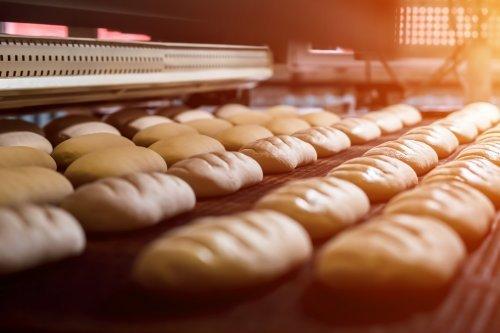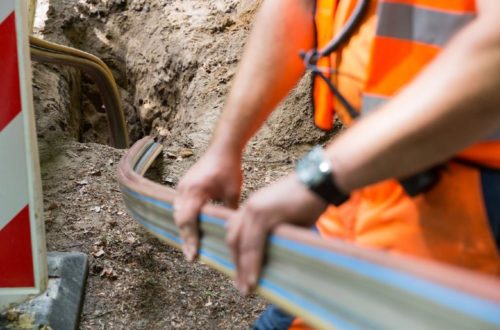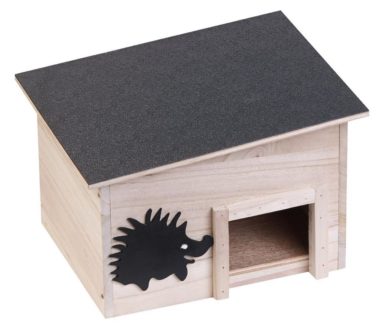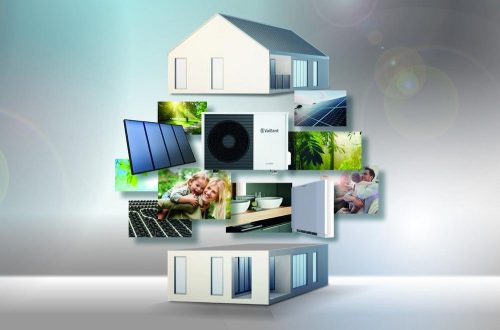
Controlling the Bake of the Perfect Loaf
The requirements for the bread furnace machine defined four temperature zones. The first zone is especially powerful to compensate for the cooled conveyor belt and the relatively cool loaf entering the oven. At this step, steam is also injected into the furnace to give it that freshly-baked sheen. It is followed by three temperature-controllable baking zones that are carefully controlled for baking the optimal loaf. The conveyor belt of this traveling oven design must also be held at the correct speed throughout the process. Rounding off the specifications was a human-machine interface (HMI) to configure the baking process, deliver temperature status of each zone, and output any error status information.
For the HMI, the team selected the Advanced HMI DOP-107WV from the DOP-100 Series. This touch-based control panel features a 16:9 7” color TFT screen with a modern-looking, narrow frame. Its multilingual support meant it was well-suited for the target market, while user-friendly editing software ensured that the final user interface was easy to navigate. With several RS-485 capable COM ports, it integrated perfectly with the other components selected for the furnace. Considering the operating environment, the flat, wipeable surface of the DOP-107WV proved the ideal choice for a dusty bakery. Control for the conveyor was implemented using an MS300 Series inverter. This AC motor variable frequency drive (VFD) also supported the RS-485 Modbus interface and is ideal for open-loop control of IM and PM motors.
Of course, the quality of the bake is ultimately defined by the furnace. Special attention was given to selecting the optimal control approach for the seven heating elements used. After careful deliberation, the DTC1000 Temperature Controller was selected as the main controller, with DTC2000 controllers used in parallel for the remaining six heaters. These are also connected to the Modbus. The selection of established, reliable components, along with the careful programming, were critical in delivering a low-maintenance design that could be operated 24/7.
To provide optimal temperature regulation, the auto-tuning function of the DTC1000/2000 was used. The inputs are acquired from third-party PT100 temperature sensors while control of the heating elements is implemented with solid-state relays. Auto-tuning uses a training process to configure the closed-loop PID controller once the sensors and heaters are installed in this 250 kW furnace. Further complicating the implementation is the dual heating and sensing of the last three baking zones. With one heater above the conveyor and the other below, each needs to be set to a different temperature. Spare outputs from the Delta Temperature Controllers were available and linked to relays for audible and visible alarm signals. These signals were also replicated in the DOP-107WV HMI.
Closely coupled with the quality of the bake is the speed control of the conveyor belt. The MS300 VFD is linked to an inductive proximity sensor that is easy to clean and remains accurate in the dusty baking environment. Installed closed to the gears, the built-in programmable logic controller (PLC) of the MS300 is configured to monitor and calculate the conveyor speed. This is continuously compared it to the setpoint defined in the HMI. Thus, the end-customer only needs to set the desired baking time, the required temperature, and then press run to start baking.
The Mechatronics Ltd. team benefited from the broad range of industrial automation solutions in the Delta portfolio. Integration of the VFD, HMI, and Temperature Controller was simplified thanks to the out-of-the-box interoperability and connectivity of the components selected.
“Most people would assume that baking bread is very simple. On the contrary, the bread furnace project has highlighted the skill required of both bakers and engineers to create a machine that delivers the perfect loaf. The auto-tuning function of the DTC1000/2000 played a large part in ensuring that bakers can deliver a quality product every batch, by providing excellent temperature control,” said Victor Ogedegbe, Field Application Engineer at Delta.
“Construction of the bread furnace was simplified by the availability of components that are interoperable and fulfilled the requirements demanded by our customers. Accurate temperature control was most critical for us, and the Delta team’s support was essential in configuring the DTC1000/2000 auto-tuning function. This assistance contributed to the project moving from the initial design stage to full production in just seven months,” said Toma Draganov, Automation engineer at Mechatronics Ltd.
Delta, founded in 1971, is a global leader in switching power supplies and thermal management products with a thriving portfolio of smart energy-saving systems and solutions in the fields of industrial automation, building automation, telecom power, data centre infrastructure, EV charging, renewable energy, energy storage and display, to nurture the development of smart manufacturing and sustainable cities. As a worldclass corporate citizen guided by its mission statement, "To provide innovative, clean and energy-efficient solutions for a better tomorrow," Delta leverages its core competence in high-efficiency power electronics and its CSR-embedded business model to address key environmental issues, such as climate change. Delta serves customers through its sales offices, R&D centres and manufacturing facilities spread over close to 200 locations across 5 continents.
Throughout its history, Delta has received various global awards and recognition for its business achievements, innovative technologies and dedication to CSR. Since 2011, Delta has been listed on the DJSI World Index of Dow Jones Sustainability™ Indices for 8 consecutive years.
In 2017, Delta was selected by CDP (formerly the Carbon Disclosure Project) for its Climate Change Leadership Level for the 2nd consecutive year. For further information about Delta, please visit www.delta-emea.com.
Delta Electronics (Netherlands) B.V.
Zandsteen 15
NL2132MZ Hoofddorp
Telefon: +31 (20) 8003900
Telefax: +31 (20) 8003999
http://www.delta-emea.com/
Mepax
Telefon: +34 (619) 0277-78
E-Mail: m.depablos@mepax.com
Delta EMEA
Telefon: +31 (20) 65509-06
E-Mail: jwu@deltaww.com
![]()



